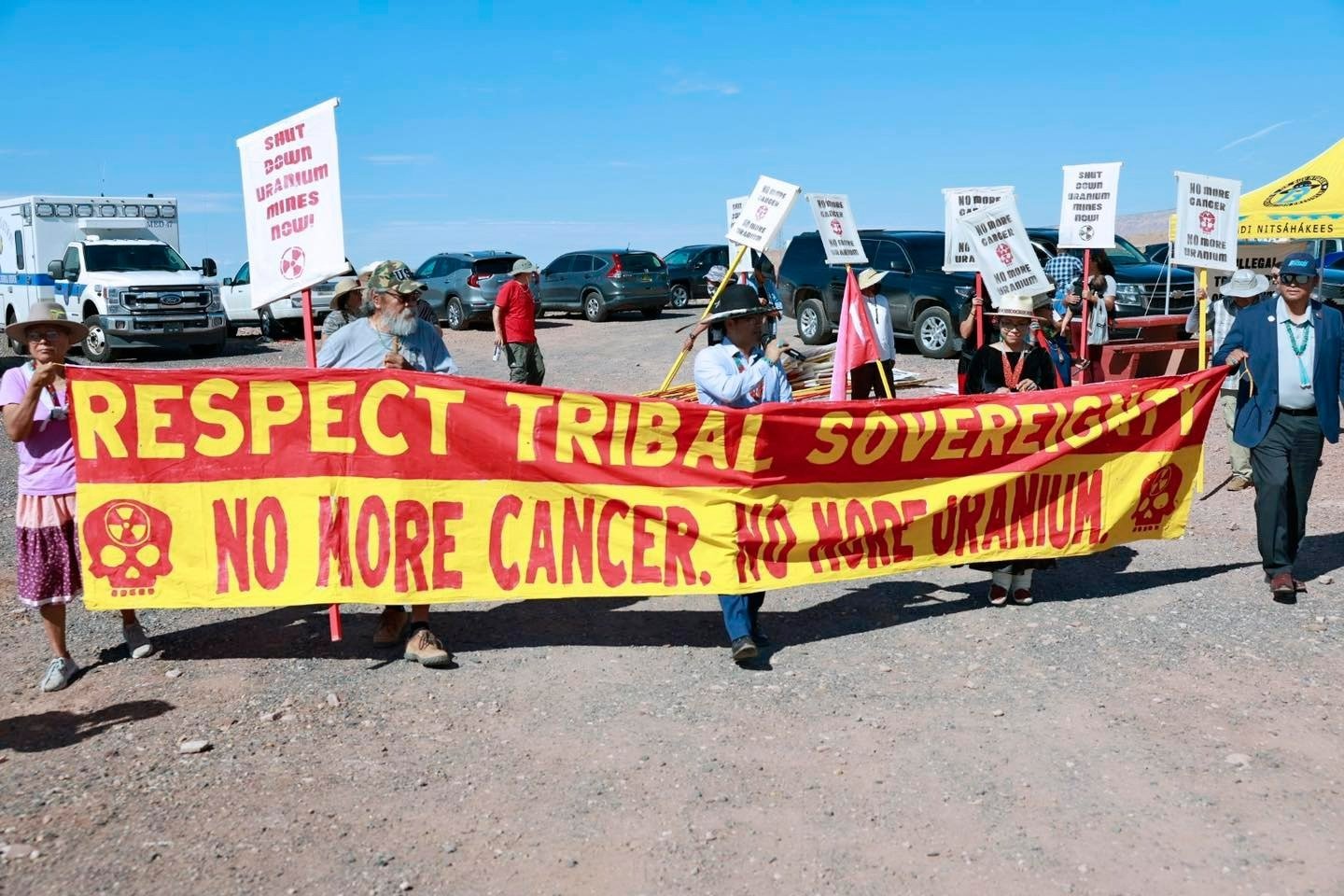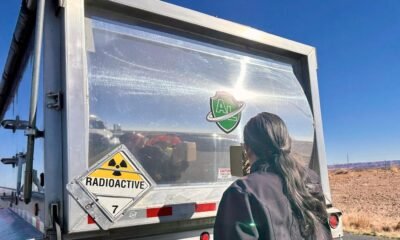arizona
Navajo Nation and Havasupai Tribe Unite to Oppose Uranium Ore Transport on Sacred Lands

Tribal leaders from the Havasupai Tribe and Navajo Nation were met with a disconcerting surprise concerning uranium ore transport from the Pinyon Plain Mine near the Grand Canyon. On July 30, two trucks carrying the ore were already en route to a uranium mill in Utah, despite earlier assurances requiring a two-week advance notice to the communities.
Navajo Nation President Buu Nygren expressed strong disapproval, saying, “They snuck through the Navajo Nation.” By the day’s end, it was established that the trucks had passed through the Navajo Nation and crossed into Utah. Nygren accused Energy Fuels Resources, Inc. (EFRI) of covert and illegal operations, further complicating the trust issues with the corporation.
The owner of the Pinyon Plain Mine, EFRI, commenced the transport of uranium ore without notifying the affected tribes or stakeholders. Tribal lands, including those of the Navajo, Hopi, Havasupai, and Ute Mountain Ute, lie along the transport route. Havasupai Tribe accused EFRI of breaching their promise made months ago to give advance notice. The tribe condemned this disregard for their sovereignty and voiced their ongoing opposition to the mining operations.
“Pinyon Plain Mine owners have strategically attacked the sovereignty of the Havasupai Tribe and neighboring Tribes,” the Havasupai Tribe said in a statement. They emphasized their long-standing resistance against uranium mining, citing risks to drinking water and health.
Since December 2023, Pinyon Plain Mine resumed operations, prompted by rising uranium demands. By early January, EFRI had informed the Kaibab National Forest of uranium ore extraction, marking the first removal instance from the mine. The Havasupai Tribe has vowed to support the Navajo Nation in their shared battle against uranium mining and transportation.
The trucks traveling through the Navajo Nation passed via Grey Mountain, through communities like Cameron, Tuba City, Kayenta, and Mexican Water. The legacy of uranium mining has been devastating for the Navajo Nation, leaving behind abandoned mines and contaminated lands. From 1944 to 1986, almost 30 million tons of uranium ore were extracted, and countless Navajo people worked in these hazardous environments.
Navajo Nation Council Delegate Casey Allen Johnson criticized EFRI’s harmful actions. “Energy Fuels Resources is threatening our people’s lives and health,” he stated. The Environmental Protection Agency reports thousands of uranium mines were operational through the mid-20th century, predominantly on federal and tribal lands.
Navajo Nation Council Speaker Crystalyne Curley reiterated the adverse impacts on their people, who have suffered “for many years” due to uranium mining. Curley declared the council’s strong opposition to the transportation of uranium ore through Navajo lands to protect their people’s health.
In response, Nygren issued an executive order on July 31, enforcing an agreement requirement for radioactive material transport through the tribe’s land. This temporary order demonstrates the tribe’s commitment to enforce Navajo laws and uphold their sovereignty.
The Navajo Nation outlawed uranium ore transportation over a decade ago via their 2012 Radioactive and Related Substances, Equipment, Vehicles, Persons, and Materials Transportation Act. EFRI’s recent actions reflect a blatant disregard for these regulations and the tribe’s authority. State and federal leaders have been called upon to aid in the fight against uranium transport through tribal lands.
Arizona Attorney General Kris Mayes voiced her office’s commitment to protecting residents’ health and safety. Governor Katie Hobbs noted her administration’s proactive measures to stall ore shipments and initiate good faith negotiations between EFRI and the tribal stakeholders for a safe, mutual resolution.
Governor Hobbs expressed hope that these negotiations would lead to an acceptable solution, ensuring that protective measures are in place for both communities’ well-being and sovereignty.


















